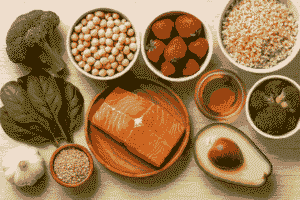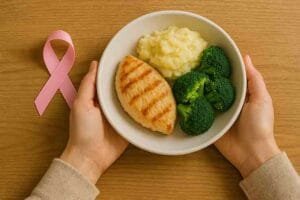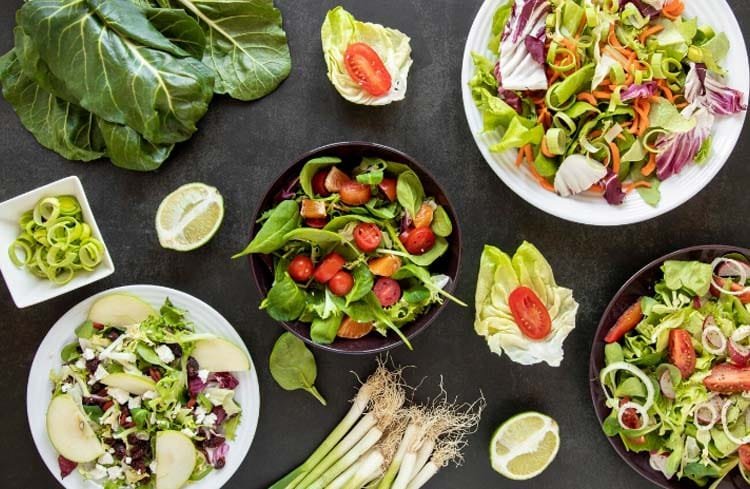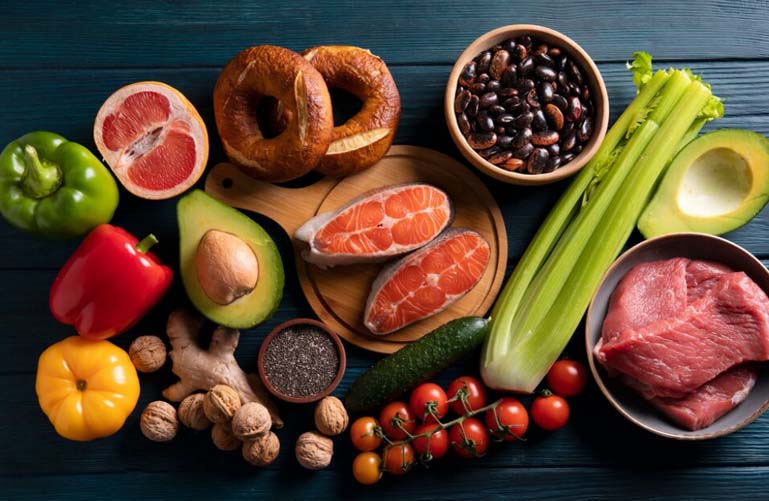Nutrition during cancer treatment is essential to support the patient’s health, improve treatment response, and minimize side effects. A balanced diet tailored to their needs helps maintain energy, strengthen the immune system, and promote recovery.

The Importance of Nutrition During Cancer Treatment
Nutrition plays a crucial role in the well-being of people undergoing cancer treatment. A proper nutrition during cancer treatment It can significantly improve quality of life and provide the necessary support to cope with the side effects of treatments such as chemotherapy. During this process, patients may experience Loss of appetite, which makes it even more important to understand how to feed a person with cancer effectively
A balanced and nutrient-rich diet can help strengthen the immune system, a key factor when facing debilitating conditions. Foods Foods for cancer patients They should focus on including fruits, vegetables, lean proteins, and whole grains, as these food groups provide essential vitamins and minerals. For example, fruits and vegetables are rich in antioxidants that can help fight cellular damage, while proteins are vital for recovery and maintaining muscle mass.

Additionally, it is important to consider that Oncological nutrition oncological nutrition not only focuses on what is eaten, but also on how it is eaten. incorporating small and frequent meals can be more tolerable and help maintain energy levels. for people undergoing treatment cancer diet, it is advisable to adapt the diet to their individual preferences and needs, which can encourage adequate intake and minimize the effects of nutrition during chemo.
In this context, it is essential that patients feel supported in their food choices and are provided with information about the available options that promote their health and well-being during this challenging process.
Managing Side Effects: Nutritional Strategies
Cancer treatments often bring a range of side effects that can complicate eating and nutrition during cancer therapy. Among the most common are loss of appetite, nausea, and changes in taste perception — all of which can make it difficult to consume adequate food and essential nutrients. Understanding these effects and implementing appropriate nutritional strategies becomes crucial in oncological nutrition.
To counteract loss of appetite, it is advisable to opt for small, frequent meals instead of the traditional three large meals a day. This allows the patient to eat more often without feeling overwhelmed. Choosing calorie- and nutrient-dense foods—such as nuts, smoothies, and dairy products—can help increase essential calorie intake without the need for large food volumes. When cancer-related appetite loss occurs, focusing on food quality rather than quantity becomes essential.
Nausea can be a significant challenge during chemotherapy, and it is advisable to avoid heavy or highly seasoned meals. Instead, lighter options like ginger—known for its anti-nausea properties—can be considered. Additionally, cooking methods such as steaming or roasting can make food easier to digest and less overwhelming.
Additionally, it is important to consider changes in taste perception. Some patients may find that foods they once enjoyed are no longer appealing. Experimenting with different combinations of flavors and textures can be helpful in rekindling interest in eating. Presenting food in an appealing way can also play a key role in stimulating appetite and enhancing the enjoyment of meals.
Foods That Strengthen the Body

during cancer treatment, maintaining good nutrition is essential to help the body cope with treatment side effects and improve quality of life. there are foods that are particularly beneficial and can play a key role in cancer nutrition. these foods not only strengthen the immune system but can also help mitigate cancer-related loss of appetite.
The smoothies they are an excellent option to ensure adequate calorie intake. they can be prepared with fruits, vegetables, and protein powder, which makes them a versatile and nutritious option. in addition, being liquids, they are easier to consume for those experiencing side effects from cancer treatments that affect the ability to eat solid foods. incorporating smoothies into the daily diet can be a practical method to ensure the necessary nutrients are obtained.
lean proteins, such as chicken, turkey, and fish, are also essential in cancer nutrition. these protein sources are crucial for cell repair and maintaining muscle mass, which is fundamental during chemo. additionally, legumes like lentils and beans provide not only protein but also fiber and antioxidants, important elements for digestive health and infection prevention.
on the other hand, nuts and seeds are another excellent option to include in the diet. these foods are rich in healthy fats, vitamins, and minerals, which contribute to strengthening the body. they can be easily added to salads, yogurts, or eaten as snacks. by paying attention to the selection of these foods, it is possible to develop a balanced cancer diet that supports the overall well-being of people undergoing treatment.
Practical tips for caregivers and family members

Caring for a person undergoing cancer treatment involves not only medical attention, but also emotional and practical support that significantly affects their overall well-being. Nutrition plays a critical role during this process, and therefore a thoughtful approach to cancer nutrition is required. Caregivers and family members can create a supportive environment for eating, thereby optimizing both food intake and the patient's mental health.
One of the effective strategies involves engaging the patient in meal planning. Asking what foods they want to eat or exploring recipes that include foods for cancer patients can help increase their interest in eating, especially during episodes of cancer-related loss of appetite. Likewise, it is essential to present meals in an appealing and varied way, which can improve the experience and make it more enjoyable.
It is equally crucial to be aware of the impact of side effects from cancer treatments. These can range from nausea to changes in taste, which could affect the cancer diet. Adapting meals to these needs, such as offering lighter or cooler foods, can be beneficial. Incorporating nutritious snacks between meals can be another alternative to ensure the patient is properly nourished, despite their condition.
Empathy and understanding are essential in this process. listening to and validating the patient’s emotions about their eating situation can create a more positive environment. showing support and flexibility in meal times and types of food also helps promote a more comfortable eating experience. in the end, caring for and paying attention to the needs of a person with cancer not only improves their nutrition but also serves as a powerful reminder that they are not alone on this journey.
For more detailed and expert-backed information, visit the national cancer institute’s guide on alimentación durante el tratamiento del Cáncer
Maybe you might like: Essential Tips for a Healthy Diet


